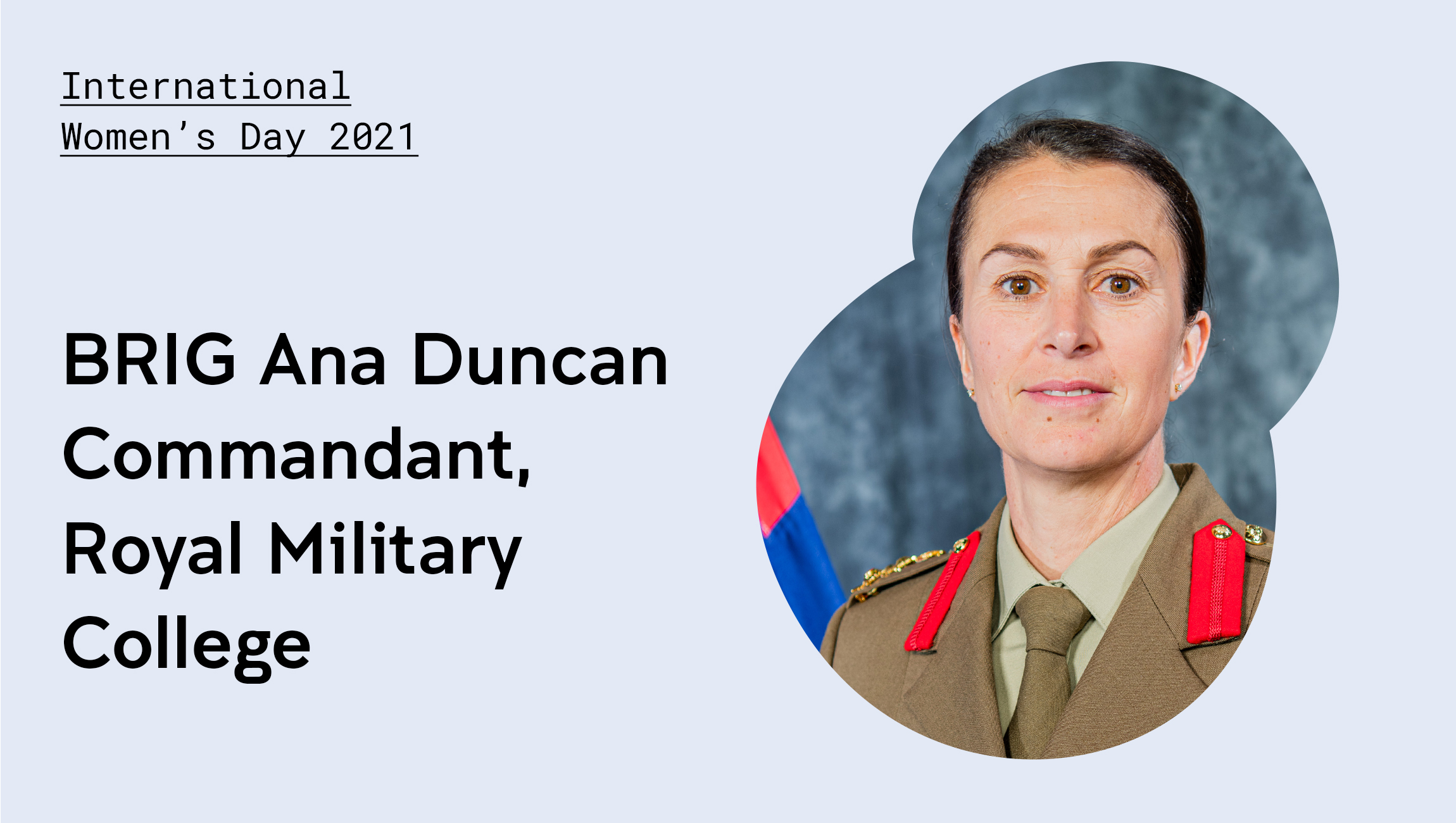International Women’s Day – Brigadier Ana Duncan
To celebratc International Women’s Day, we sat down with some of our amazing UNSW Canberra alumni, staff and students and asked them to answer your #WomenLead questions.
To celebratc International Women’s Day, we sat down with some of our amazing UNSW Canberra alumni, staff and students and asked them to answer your #WomenLead questions.

To celebratc International Women’s Day, we sat down with some of our amazing UNSW Canberra alumni, staff and students and asked them to answer your #WomenLead questions.
Brigadier Ana Duncan, a UNSW Canberra alumna, currently holds the positions of Commandant of the Royal Military College – Australia and Director General Army Leadership. She has been awarded various senior honours for her command, leadership and innovation.
Brigadier Duncan shares her advice on the art of leadership, being authentic and supporting women around you.
Do you have any advice for cracking the glass ceiling?
If you fundamentally believe there isn’t one, you will be surprised at where you will find yourself one day. Be competent in your profession, be good to people, and have a work ethic. And make sure you pull other women up with you throughout.
Can you share some advice for climbing the ladder in a male-dominated field?
Be positive, not pessimistic, about the opportunities available to you. I’d offer to achieve your goals, invest in your professional development. Some steps that ring true across workplaces for this are to focus on:
Do you have any advice for changing the culture of an organisation to facilitate women in leadership positions?
Armed forces understand intimately that culture eats strategy for breakfast. In my experience, to evolve an organisation’s culture you need to communicate ‘why’ this is important. So, in this instance, ask what’s the value proposition diverse leadership provides the organisation? A second key step is for the organisation to define or revise its values – ask what is at the collective character of what the organisation stands for? And finally, the organisation needs to monitor the behaviour of its people. Behaviours inculcate and normalise change.
What is it that I can do right here and now as a straight, white male to make a difference and to better support and promote female leadership?
Like men, women are not all the same. Some women will need to be encouraged, supported and invested in to achieve their leadership potential. Keep an eye out for female colleagues who you know have leadership potential and coach them through opportunities that present in the workplace.
What do you see as the difference between leadership and management?
They are complementary but different things. Without sounding quaint, leadership is an art, which comes from an individual’s character to inspire others to do something. Leaders consider context more so than managers. Management is more a science of coordinating and administering. Both deliver outcomes and realise objectives.
What would you tell your 20-year-old self about leadership?
Being authentic is the right path for you. On leadership – study it, do it, and reflect on others’ styles, but back yourself. Understanding people and context is at the core of leading.
In your view what makes a good mentor? Do you have any advice for seeking out a mentor?
A good mentor is a good listener and tells you the things you don’t expect or want to hear. You need to feel comfortable in sharing things with your mentor, and you can’t be embarrassed or intimidated by them.
Just ask, you’ll be surprised at how easily they will usually say yes!
Do you have any advice for handling failure?
Own it. We all learn from our failures and it builds our resilience to other knocks that aren’t self-generated over time. It takes courage to own it, but others will be inspired by you. More importantly, you will feel at ease with your inner self.
How important is diversity of leadership?
Proof is in the data and the results. It’s vital, and competitive organisations know it is.
What’s the best piece of leadership advice you’ve ever been given?
Leaders set the standard and example, but they also need to understand when to follow.
How can organisations foster a culture of promoting and valuing women, rather than seeing a woman in leadership as an exceptional case?
Recognise her talent for what it is.
Can you provide some examples of exceptional leaders? What makes them a great leader?
The humble, job-competent, people-oriented person you work with who turns their ideas into others’ ideas. And, in doing so, motivates others to get things done.
Read more International Women’s Day Q&As: